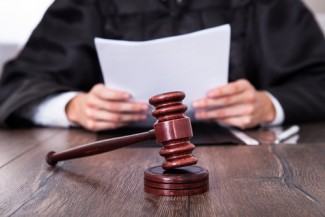Judge may send letter encouraging lawyers to do pro bono work, ABA ethics opinion says

Image from Shutterstock.
An ABA ethics opinion issued today concludes that a state supreme court justice may sign a letter on the justice’s stationery that is then mailed by the state’s unified bar association to all lawyers licensed in the state encouraging them to meet their obligations to perform pro bono work. Rule 6.1 of the ABA Model Rules of Professional Conduct encourages—but does not require—lawyers to perform 50 hours of pro bono work per year.
Formal Opinion 470 (PDF), issued by the ABA Standing Committee on Ethics and Professional Responsibility, concludes that a judge may send a general letter encouraging lawyers to engage in pro bono or other public service work without violating Rule 3.7 of the ABA Model Code of Judicial Conduct. Rule 3.7(B) states: “A judge may encourage lawyers to provide pro bono publico legal services.” Comment 5 to Rule 3.7 explains that “a judge may promote broader access to justice by encouraging lawyers to participate in pro bono public legal services, if in doing so the judge does not employ coercion, or abuse the prestige of judicial office.”
In its opinion, the Ethics Committee states that, “Although signing a letter encouraging lawyers to perform pro bono services is not one of the specific activities listed as permissible in comment 5, the committee thinks the rules do not prohibit a judge from sending the encouraging letter described in this opinion.” The committee notes that its conclusion is in accord with at least two other opinions issued at the state level.
The opinion also states that a judge’s efforts to encourage pro bono activities by lawyers must be in accord with Rule 3.1 of the Judicial Conduct Code. While Rule 3.1 permits judges to engage in extrajudicial activities, those activities may not interfere with the proper performance of the judge’s judicial duties; lead to frequent disqualification of the judge; appear to a reasonable person to undermine the judge’s independence, integrity or impartiality; or appear to a reasonable person to be coercive.
Formal Opinion 470 urges judges to consider several factors before sending a letter encouraging lawyers to engage in pro bono work, including the number of lawyers who will receive the letter; the number of judges serving the jurisdiction; whether the letter is a personalized correspondence or a general plea to the bar as a whole; whether there will be some form of post-letter monitoring; and the tone of the letter.
States with unified bars require all lawyers licensed in the jurisdiction to be members of the association. Unified bars exist in 30 states plus the District of Columbia, the U.S. Virgin Islands, Puerto Rico, Guam and the Northern Mariana Islands.



